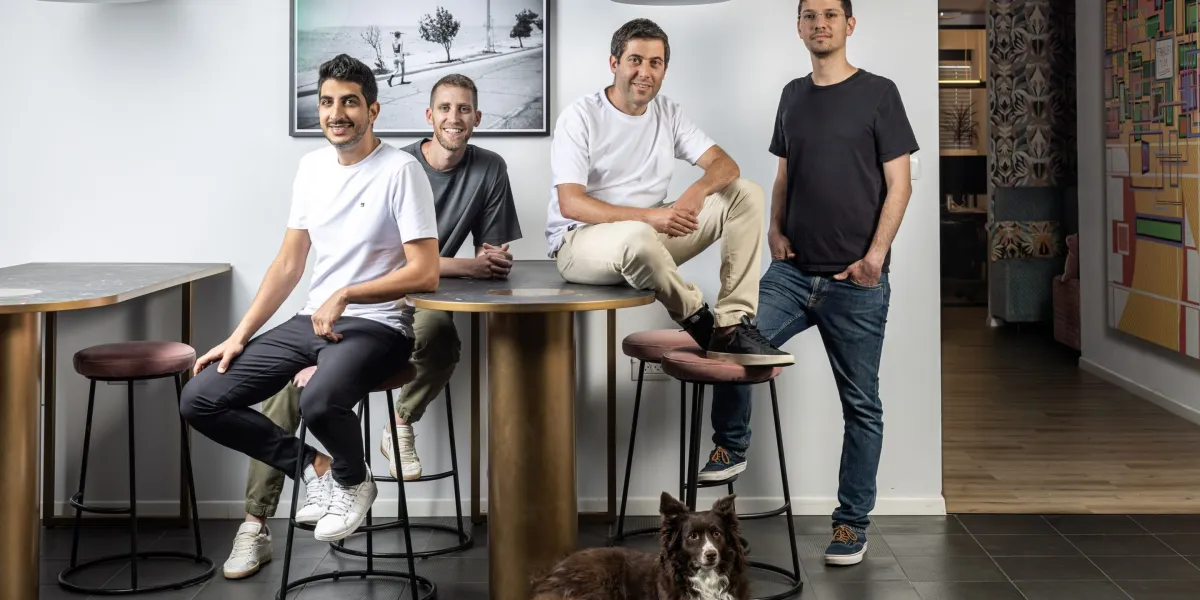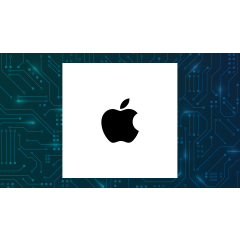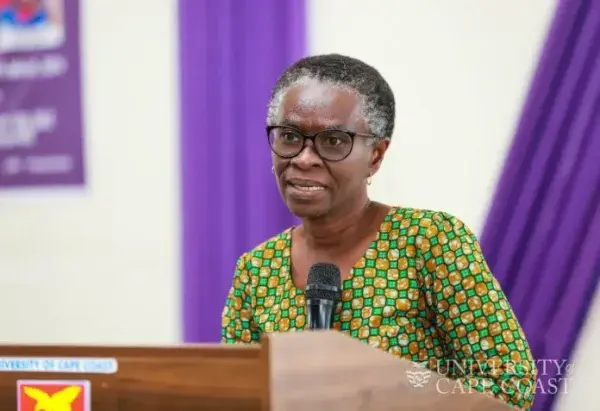Inside the cybersecurity boom, strong team, and bold gamble that helped Wiz CEO Assaf Rappaport win a $32 billion deal with Google

Pichai’s email went unanswered for months.
It wasn’t that Rappaport, the cofounder and CEO of cloud-security startup Wiz, was avoiding the Google chief’s pursuit. Rather, Rappaport had managed to completely miss the message to begin with.
It was the spring of 2024, and Wiz had become one of the fastest-growing startups in tech history, hitting $350 million in annual recurring revenue in just four years. A $300 million Series D round had given Wiz a valuation of $10 billion, reportedly making it the first software-as-a-service (SaaS) company to hit that milestone that fast. Rappaport was jetting between Wiz’s headquarters in New York City and his hometown of Tel Aviv, home to one of Wiz’s engineering hubs. In other words, the guy was busy.
It took until May for the entrepreneur to realize what he was missing. At a cybersecurity conference in San Francisco, a contact close to both companies told Rappaport that Google wanted to talk to him—and that he might want to check his inbox. As the event wrapped, Rappaport and one of his cofounders, Yinon Costica, headed to Google’s offices in Mountain View. There they met higher-ups including Thomas Kurian, head of Google’s massive cloud division. And yes, Pichai was there, too.
Things moved fast from there. Less than a month later, Google offered $23 billion for Wiz—roughly double its valuation at the time. Google had good reason to pay a premium. While its cloud business had become a critical source of growth, corporate customers wanted assurance that their data and applications were secure there. Wiz’s tools, which could easily scan for vulnerabilities in cloud environments, were in high demand. Bundling the two wouldn’t just provide a more secure experience, it could bolster Google’s traction with customers.
And for Wiz? Well, $23 billion is a lot of money. But the decision was more complex than it seemed. Up until then, Rappaport had put his company on a path toward an initial public offering, not an acquisition. As much as he was flattered and flabbergasted by Google’s offer, there were advantages to keeping Wiz as independent as possible, for as long as possible, including the chance for his team to build on its fast-rising reputation—and to join the ranks of the very few Israeli founders to take a company all the way to an IPO.
In late July, Rappaport let Google know he was turning them down. “It is one of the toughest decisions a founder can make,” Rappaport told Fortune in one of several interviews this summer. “We had some natural reservations, and everything was moving so quickly.”
His decision may have been excruciating, but it turned out to be the right one, at the right time. Less than a year later, Google came calling again. This time it upped the ante, offering $32 billion and a hefty termination fee of $3.5 billion. (Another helpful factor: a more M&A-friendly administration in the White House.) And by then, Rappaport had had plenty of time to get comfortable with the idea of selling. “After getting to know the team, the culture, and seeing just how impressive everyone was, saying yes the second time felt natural and much easier,” says the cofounder.
On March 18, Google announced that the two companies were finally putting a ring on it. Wiz would sell to Google, folding its roughly 2,000 employees into the search giant. The all-cash transaction, which is expected to close in 2026, will turn Rappaport and his cofounders into overnight billionaires. It will also mint substantial returns for Wiz’s high-powered roster of backers, including venture capital firms Sequoia Capital and Index Ventures, along with individual investors Howard Schultz and LVMH’s Bernard Arnault.
The deal cements Wiz’s place in the pantheon of software successes. The selling price ranks among the top 10 M&A deals in tech history, and represents the largest cybersecurity acquisition of all time, not to mention the most expensive purchase Google has ever made in any sector. (Google declined to comment for this story.)
That’s why it’s worth taking a closer look at Wiz’s rapid ascent, from zero to $32 billion in five years. In interviews with Rappaport and those closest to Wiz, a blueprint emerges. One critical piece is the founding team and the time they took to learn together—including spending years at Microsoft after the enterprise-software giant acquired their first company. Another key component is timing. Wiz launched at the onset of COVID with a tool tailor-made for cloud adoption, which took off as employees began working from home in droves. There’s also a sprinkling of chutzpah—especially when it comes to Wiz’s CEO. That’s not just because Rappaport chose to build a new product in a market teeming with incumbents, or to go after large enterprise customers from the get-go. It’s also because he walked away from the software deal of the decade—only to be offered an even better one.
“I would say that most of my biggest [opportunities] started with me not showing up to a meeting or not answering someone,” Rappaport tells me, seemingly amused by his own folly and good fortune.
The 42-year-old founder and I are seated in a conference room in Wiz’s swanky Hudson Yards HQ, a 52nd-floor office with panoramic views of Manhattan. Rappaport is dressed in jeans, sneakers, and a white T-shirt that could just as easily have cost $5 at Target or $500 at a West Village boutique. His backpack, which he carries around religiously, is adorned with several decorations, including a pin of the Hamburglar, which he says he received from the cybersecurity team at McDonald’s. There’s an almost childlike quality to Rappaport—a genuine sense of wonder, even when it comes to his own success. It’s part of the founder’s charm, an unassuming modesty even as he’s pursuing not-so-modest goals.
“I don’t think it’s something you can digest,” Rappaport says when I ask how he feels about the $32 billion. “It’s almost like a meaningless number.” That said, he’s quick to say he knows the deal is life-changing.
The money certainly puts him in an elite echelon of tech founders. But Rappaport doesn’t have the larger-than-life tech-mogul personality of a Marc Benioff or Mark Cuban. He’s quiet and quirky, drawing people to him not because he’s bombastic or demands the spotlight but because he does nothing of the kind. He is intense but doesn’t take himself too seriously. Those closest to him say he’s got the highest IQ and EQ they’ve ever seen. That he’s laser-focused on winning, but that he pushes those around him to aspire to win, too. And that, even when it seems like he’s in the moment with you—or, perhaps, when he’s late to meet you—he’s simultaneously five steps ahead.
“When he wants to achieve something, he does anything for it,” says Yevgeny Dibrov, the cofounder of cybersecurity startup Armis, and a former employee of Rappaport’s. “He is shy, but he just goes and closes the deal.”
Dibrov says Rappaport gives that same level of commitment to his team, following his instincts to elevate them to sometimes-unconventional positions. He put Dibrov in charge of his first company’s business development and sales functions when Dibrov was just 24. And at Wiz, he promoted a product person with zero relevant experience—at least on paper—to be chief marketing officer.
“If Assaf left to go start a dental company I’d go work for him there,” says Raaz Herzberg, that former product person, who is still Wiz’s CMO.
The night before my interview with Rappaport at Wiz’s headquarters, I meet him and a small handful of those in Wiz’s inner circle at an Indian restaurant on the Upper West Side. A member of the company’s communications team orders for the group, making sure to ask the waitress to leave anything green—such as a sprig of cilantro, God forbid—off of the chicken tikka masala.
Despite his thin frame, Rappaport is known for consuming burgers and chicken nuggets and not much else. Indian food is one of the only “adult cuisines” that he’ll eat, at least as long as the curry’s not tainted by herbs or vegetables. (“Early on, I made the mistake of taking him to a nice restaurant,” one of Wiz’s investors tells me later.)
The conversation is lively. There’s plenty of disagreement, even over who is the more stylish of the co-founders (Rappaport is the most fashion-conscious, the group ultimately decides, but Costica is the most dressy), but also laughter. It seems more like a group of old friends getting together for dinner—with all of their quirks and baggage, but also genuine fondness for each other, on full display—versus a corporate outing.
“Obviously I’m not objective here, but I think it’s a once-in-a-lifetime team,” Costica tells me in an interview that took place earlier that day. “And I can’t see myself working with any other team.”
All four founders are close. But Costica and Rappaport have a particularly interdependent relationship, with Costica sometimes stepping in for the CEO, a self-diagnosed introvert, when Rappaport has had his fill of the spotlight. (During a cab ride to a founders’ lunch hosted by one of Wiz’s investors, the venture capital firm Greenoaks, Rappaport jokes about trying to get out of interviews by faking that he’s sick.)
That intimacy reflects a long history. Wiz’s founders have been together for nearly a quarter of a century. Three of the four of them actually met on a bus on their first day of military service in Israel, where they’re all from. Rappaport, Costica, and Ami Luttwak were selected for an elite program called Talpiot, which picks about 50 of the country’s top-scoring math and physics students annually and puts them through university during their mandatory military stint.
The trio met their fourth cofounder, Roy Reznik, in the Israel Defense Forces’ 8200 cybersecurity unit, where they all ended up serving. The high-stakes, highly selective unit has developed a reputation as an incubator for the nation’s top cyber entrepreneurs. But the four technologists stood out even among the elite of the elite.
“If you come from Talpiot you already get attention,” says Nadav Zafrir, CEO of cybersecurity giant Check Point, who was the commander of the 8200 unit when Wiz’s founders were there. “And if you stand out as a leader among the leaders of Talpiot, you get extra attention.”
Rappaport, who was raised by a single mother, began taking math classes at Tel Aviv University at age 15. “Any time I was bored [in high school] I would run to a lesson at the university,” says the cofounder. His teenage years were also marked by immense challenges: As he was excelling in school, his mother was undergoing treatment for cancer, which she battled (and beat) four times.
“My mom is superstrong,” says Rappaport. “Even then she was doing everything so I could concentrate on my life and my studies, so I wouldn’t have any excuse not to accomplish my potential.”
In 2010, Rappaport completed his service. He did a stint at McKinsey, for just long enough to realize that consulting wasn’t his thing. He also came to another critical conclusion: At 26, he came out to friends and family, living his life as an openly gay man for the first time. He had always known this about himself but worried about how others would react. His main takeaway, in hindsight: “Why did I wait so long?”
Rappaport soon realized how much the newfound openness allowed him to thrive in all aspects of his life. “It takes a lot of ‘CPU’ of your mind,” he says of his years spent hiding his full identity, a reference to a device’s processing power. Now, Rappaport’s brain was “freed up” to truly create.
Wiz’s other cofounders were on their own paths, but by 2012 the four had all completed their military service and were itching to start something together. Drawing upon their 8200 experience, they began iterating on a business idea: a security tool for monitoring usage of the growing number of SaaS applications infiltrating the workplace. They started developing the product and named their company Adallom—an expression dating from the 1948 Arab-Israeli war that translates loosely as “the last line of defense.”
Word spread in Israel’s tight tech circles. Gili Raanan, a veteran of 8200 who was then a partner at Sequoia Capital’s Israel branch, got hold of Rappaport’s phone number and gave him a call.
“He told me he was advised not to talk to VCs, that VCs would invest money in his company and then replace him with an American CEO,” says Raanan. “I thought, ‘Well, this is a wonderful start to a new friendship.’ ”
Raanan asked Rappaport to meet in person. The founder begrudgingly agreed, but then failed to show up. Raanan persisted. When Doug Leone, then head of Sequoia, came to Israel for a visit, Raanan again asked Rappaport to meet.
This time, he actually showed up. Despite the fact that Rappaport mistook Leone for Don Valentine—the late Sequoia founder would have then been in his 80s, while Leone was in his 50s at the time—the investor was impressed by the founder, and his partners.
“Usually a team of four comes in thinking everybody is equal, and you find out 90 days into the company that somebody doesn’t carry their weight,” says Leone. “Here, you had four productive people” with clearly defined strengths. “That is the ideal dream team.”
Sequoia was in, as were a handful of other investors, including Index Ventures. Rappaport moved to the West Coast, setting up headquarters in Palo Alto, though Adallom’s development hub stayed in Israel.
Adallom eventually caught the attention of Microsoft, which at the time didn’t have much of a cloud-security business, even as its Azure cloud division was taking off. In the summer of 2015, three years after Adallom’s founding, the Redmond, Wash.–based tech behemoth bought the startup for $320 million, bringing all four founders in-house.
It was a successful if not earth-shattering exit. (Rappaport bought his mom an apartment in Tel Aviv, but he himself kept his same flat.) What proved more valuable than the ROI was what came afterward.
“The four of us stayed five years after the acquisition, which is crazy,” Rappaport says. Most founders leave right after a “holdback” period during which they can’t sell their vested assets; in Rappaport’s case, that was two years. But the prolonged arrangements proved to be mutually beneficial. Buoyed by the Adallom team’s leadership, Microsoft’s cloud-security group grew from nothing to a $1.5 billion business. The founders, meanwhile, learned how to truly scale a product—and how to speak and sell to enterprise customers. Rappaport also got an opportunity to hone his leadership skills: Shortly after the acquisition, CEO Satya Nadella asked him to run Microsoft’s R&D in Israel.
Eventually, the four founders decided to depart. Soon after, in early 2020, they regrouped to road-test another idea. Only this time, they had much bigger aspirations. As Raanan recalls: “They were ready.”
Stephen Ward was not buying what Rappaport’s team was selling.
It was the fall of 2020, and Ward, then chief information security officer of Home Depot, was a busy man. Securing customer data, payments, and all sorts of other digital information for a company that rakes in $160 billion a year from selling paint, bath fixtures, and well, rakes is a big job. Shardul Shah from Index Ventures, the mutual connection who introduced them, had stressed the team’s impressive pedigree. Still, a few minutes into the pitch, Ward was skeptical.
Ward was seeing the first incarnation of Wiz, which the team called Beyond Networks. It wasn’t just the bland moniker that failed to excite Ward. Their product, a tool for securing cloud-based networks, was way too narrow of a solution. What Ward needed wasn’t yet another security product to add to the many he was already paying for, but something that could take their place: a one-stop shop for scanning and securing his entire cloud environment.
“I looked them straight in the face and told them it was a bad idea,” recalls Ward. But instead of dismissing the team, he communicated his needs. Others were giving similar feedback (if less bluntly), and the founders got the message. The team soon returned to Ward with a new pitch—and a new name: Wiz.
The name might have been a bit fluffy, but the product wasn’t. Indeed, it took Ward’s call for simplification and ran with it. Instead of doing just one thing, it did several, replacing a range of tools with one interface that helped security teams have visibility (and fix vulnerabilities) across multiple cloud environments.
“It wasn’t often that we purchased technology at that [early] stage,” says Ward, but he bet on Wiz’s product. (He later bet on Wiz itself as an investor, and went on to cofound Brightmind Partners, a cybersecurity venture firm.)
There were plenty of other cloud-security products on the market, sold by incumbents like CrowdStrike and Palo Alto Networks. But none had taken Wiz’s simple yet disruptive approach. “We called it the suicide plan,” Rappaport says of Wiz’s pivot. “It was like being the last to a party, so you’re coming with a big disadvantage. But we thought, ‘This market is broken—it’s a huge market, but it’s broken—and we’re going to do things differently.’ ”
Wiz didn’t try to compete on the number of features it offered. Rather, it focused on providing customers with more visibility and on adding functionalities that were essential, competing on speed of deployment and ease of use. After Home Depot inked a deal, other large corporate customers followed suit, including Morgan Stanley, BMW, and Mars. (To date, Wiz has closed deals with 50% of companies on the Fortune 500.)
Rappaport was the engine of that growth, keeping a wish list, enlisting plenty of help—and becoming a passionate, tireless salesman. “No CEO has ever asked me for more introductions than Assaf has,” says Leone, whose firm, Sequoia Capital, invested in Rappaport again when Wiz raised a $100 million round in 2020. “It’s a pain in the neck every time you make one of those calls, ’cause you’re calling in favors.” But it all worked out, admits Leone, because every call resulted in a happy customer.
“I’ve never seen a founder so maniacally focused on the customer,” says Jeff Horing, the co-founder and managing director of Insight Partners, which was one of several firms that joined Wiz’s series A round.
Shah, from Index, concurs: “It would have been much more conventional to go after small and medium businesses. But Wiz defined the ‘Wiz 100’ [Wiz’s customer “wish list”] which was a completely different approach.”
To get the job done, Rappaport even put Howard Schultz to work. The former Starbucks CEO’s foundation had invested in Wiz after the two met. Rappaport subsequently handed Schultz a list of 10 CEOs he wanted introductions to, including the leaders of Nike and Domino’s.
The two CEOs have developed a close relationship, so close that Rappaport worried Schultz would be disappointed about Wiz’s sale to Google; he wrote him a personal note explaining his decision to do the deal. But in an interview with Schultz—with Rappaport seated next to him—it seemed the opposite was true. “I can’t fathom how they’ve done this, the growth, the velocity, during all of this absolutely crazy environment,” says Schultz, as the leaders from different generations exchanged their mutual admiration.
Schultz’s fatherly approval aside, some grumble that, as big of a windfall as the $32 billion sale might be, Rappaport could have taken Wiz all the way to an IPO and kept Wiz independent. But even those who would have wanted to see that outcome seem to be rooting for Rappaport.
“They could have gone further,” says Nir Polak, a cybersecurity founder turned investor who is now a managing partner at VC firm WhiteRabbit. “But nobody in their right mind sitting in Assaf’s shoes would have made a different decision.”
In May, just a few months after Wiz’s sale to Google, Rappaport experienced another life-changing event: He became a father. Through a surrogate in the U.S., he and his partner had twins. Shortly after the birth, they took the newborns to Israel to be close to their families.
A few weeks later, war broke out between Israel and Iran. As sirens blared, warning of incoming missiles, Rappaport found himself repeatedly hunkering down in his apartment’s concrete-and-steel-reinforced “safe room.” The babies slept through the sirens, Rappaport says. But he couldn’t help asking himself what the future would hold for his son and daughter—especially in his home country.
Like many Israelis, Rappaport has complicated feelings about the current reality after the attacks of Oct. 7, 2023, including the war in Gaza. Though he doesn’t have political aspirations of his own, Rappaport had been among the leaders of the tech industry’s protest against judicial reforms pushed by Prime Minister Benjamin Netanyahu and his coalition pre-Oct. 7. But that doesn’t change the pride he feels in Wiz’s accomplishment—including the fact that Google’s purchase represents the biggest-ever acquisition of an Israeli-founded company.
“The Israeli ecosystem has always been plagued by extraordinary technologists who sold out too early,” says Joshua Kushner, founder and managing partner of Thrive Capital, which invested in Wiz in 2024. “What [Wiz] will continue to be able to accomplish is going to be so fundamentally important to the ecosystem.”
It’s likely the “Wiz Bump” is already in effect: According to new numbers from PitchBook, there have already been more investments in Israeli cybersecurity startups (both in deal count and dollars raised) so far this year than in the whole of 2024. Over the last few months, a collective $900 million was raised by just Cyera and Cato Networks, two of the buzziest startups in the space. Deals are happening on the public market side too: In July, Palo Alto Networks acquired another Israeli cyber company, CyberArk, for $25 billion.
It helps that, according to a recent survey from Morgan Stanley, chief information officers have indicated cybersecurity spending will grow about 50% faster than software spend as a whole. This expected growth–driven, of course, by the ever-expanding threat landscape–means that there’s plenty more future opportunity for founders in the space. Including, maybe for Wiz’s team.
For now, Rappaport and his cofounders say they have big plans for scaling Wiz under Google. AI in particular represents a growth opportunity, both in figuring out ways to defend against new risks arising from the technology and utilizing it to break new ground in product creation.
“I’m not naive, and I’m going to learn,” says Rappaport about the prospect of working for Big Tech again. “There are unknown unknowns, and some of them I’m going to be surprised for good, some for bad. But we’ve done this journey [before] with Microsoft.”
Is there a third company in the cards? If there ever is, the Wiz team now has a playbook—not to mention a roster of investors whose pockets they’ve helped fatten, waiting in the wings.
“There is rarely another company after a monster exit,” says Sequoia’s Leone. “But at the same time, let me make sure I’m on the record saying: If three, four, five years from now, Assaf comes out with whatever plan, he doesn’t even have to show it to me. I’m in.”
Israel’s cyber machine



